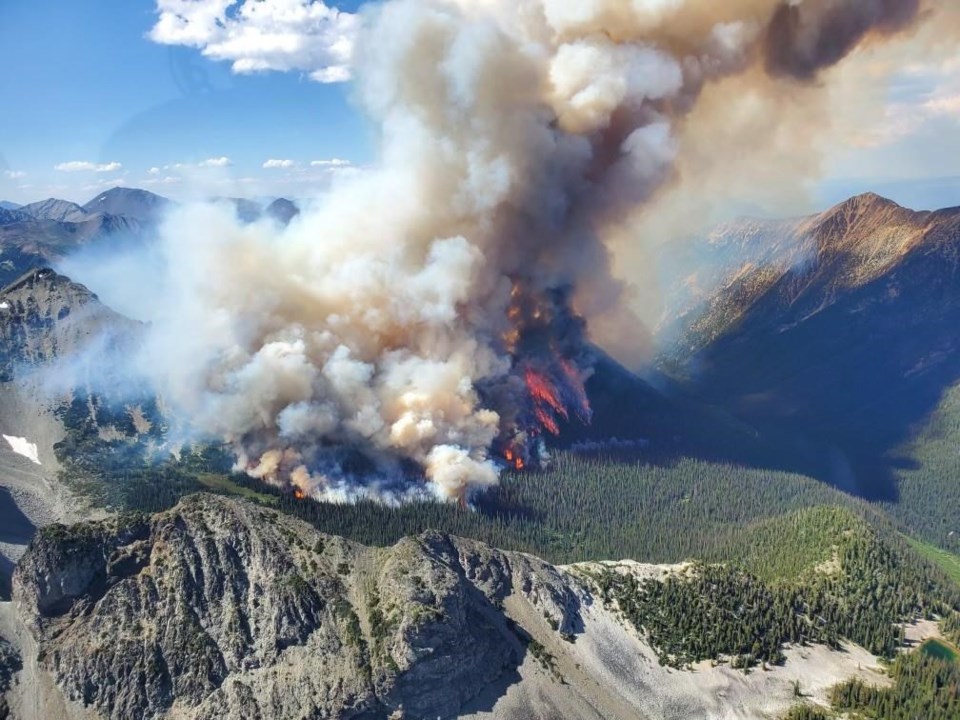VANCOUVER — A First Nation community in southeastern B.C. has lost homes because of a fast-moving wildfire, and Premier David Eby says the provincial and federal governments are teaming up to provide emergency response.Â
Officials have not yet confirmed how many people or homes have been affected on the Aq'am First Nation near Cranbrook, however Chief Joe Pierre told the CBC several homes have been lost in the fire.Â
The BC Wildfire Service says the St. Mary's River fire was human-caused, is eight square kilometres in size and is considered out of control.
The Regional District of East Kootenay issued an evacuation order on Monday for 52 homes, and another 43 properties remain on evacuation alert.Â
Eby says the provincial and federal governments will help the First Nation with the eventual rebuilding and recovery process.
He says his government is also focusing on partnering with Indigenous people and firefighters to provide a more "prompt" and "effective response" to wildfires.Â
Hundreds of wildfires are burning in the province, fuelled by tinder-dry conditions promoted by weeks of drought.Â
A record has already been set for the total area burned in a year with about 14,000 square kilometres scorched across B.C., breaking the milestone established in 2018.Â
Emergency Management Minister Bowinn Ma told a news conference Tuesday that 75 military members were heading to Burns Lake, in central B.C., to help in the firefight.Â
They join 75 others who were sent to nearby Vanderhoofas part of a federal response to the record-setting season.Â
Ma said about 150 people in B.C. are under evacuation orders due to the wildfires as of Tuesday, while about 3,400 people are on alert and must be ready to leave at short notice.
Hot weather continues to blanket much of the province, with a heat warning issued by Environment Canada for the Fraser Canyon in southern B.C. where temperatures will reach 35 C with overnight lows near 18 C through to Friday.Â
Special air quality statements have also been issued by the forecaster for a large portion of the province as wildfire smoke makes breathing difficult and reduces visibility.Â
BC Wildfire Service officials have said the season has not yet hit its peak and this season's drought could roll into next year, potentially igniting an early start to the 2024 fire season.
A provincial drought bulletin shows 18 of the province's 34 water basins are at drought Level 4, meaning harm to ecosystems and communities is likely, while four more are at the highest Level 5.Â
This report by The Canadian Press was first published July 19, 2023.
The Canadian Press




